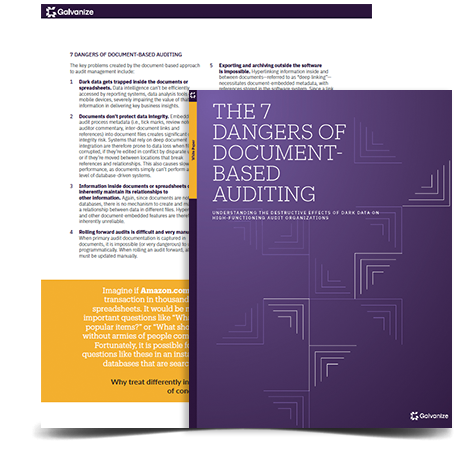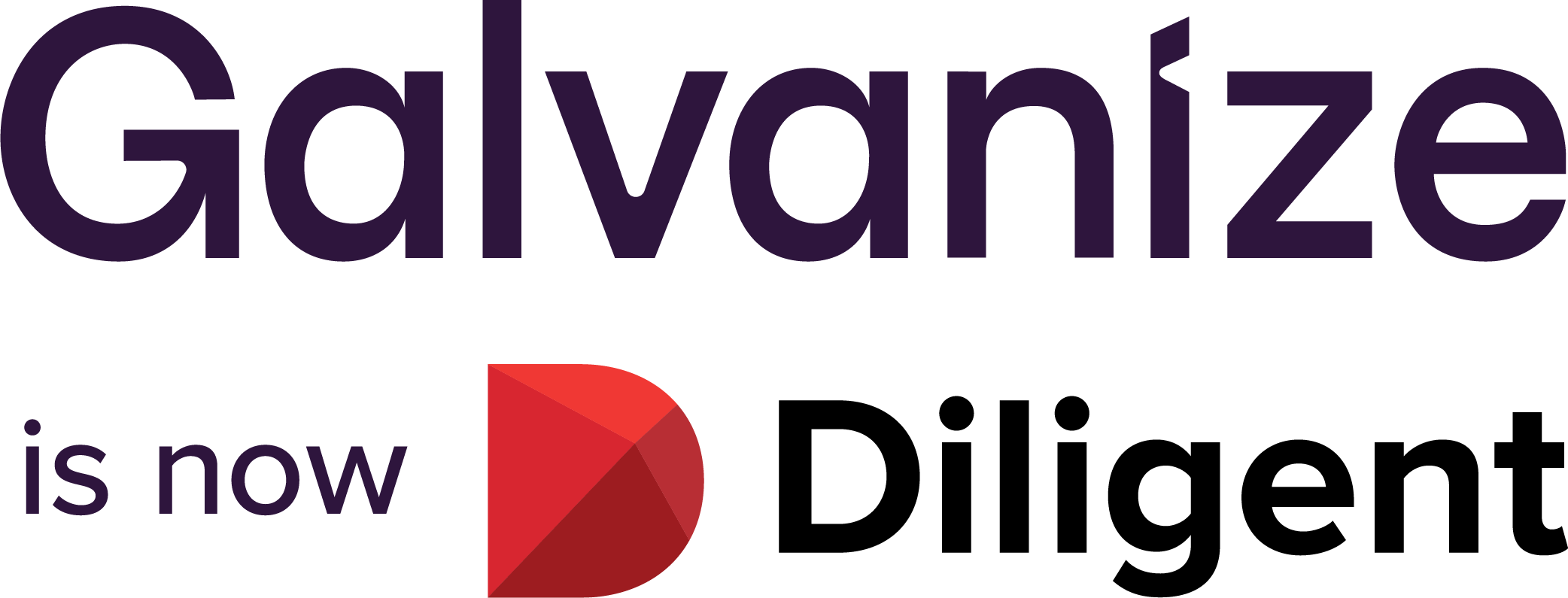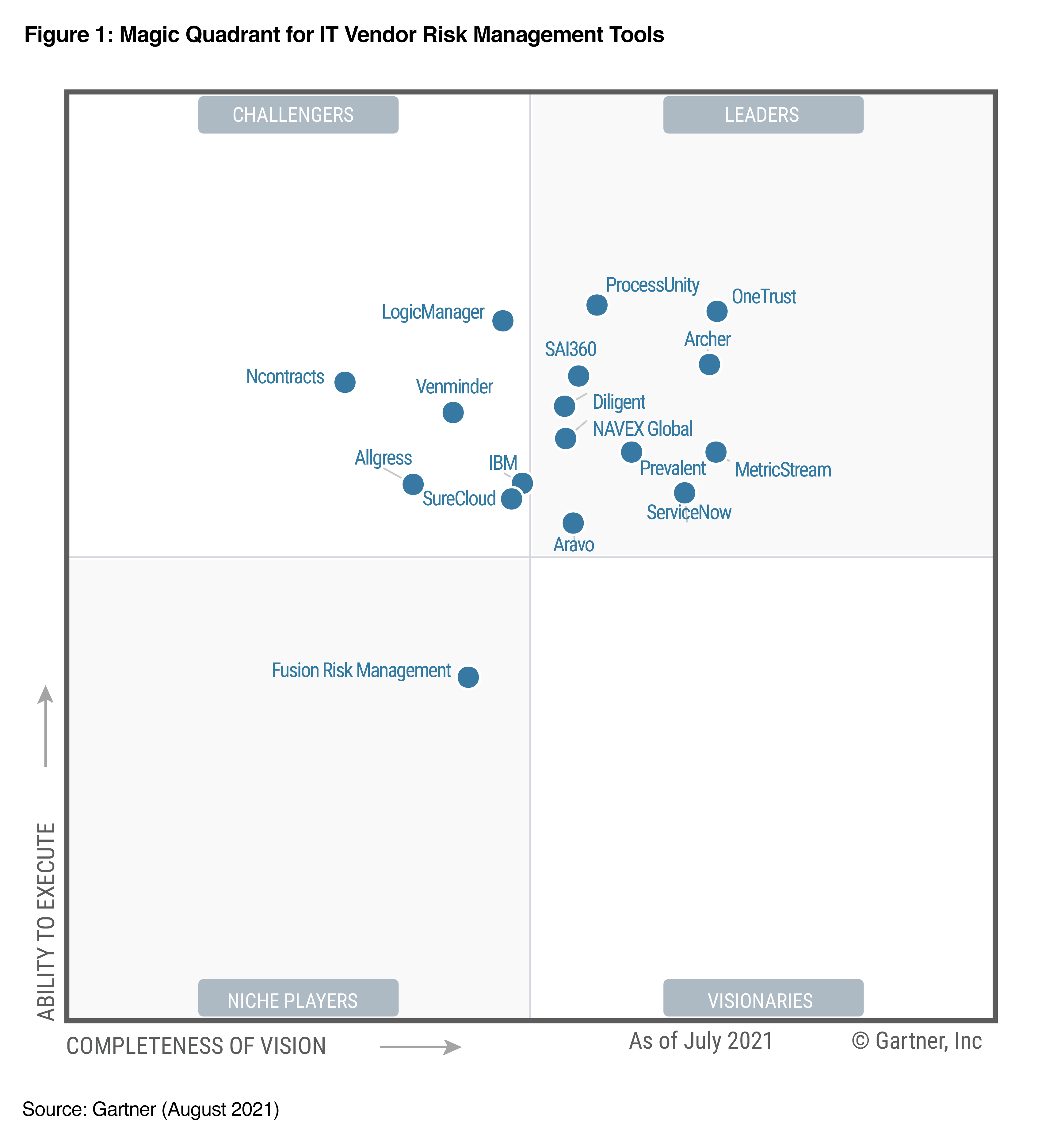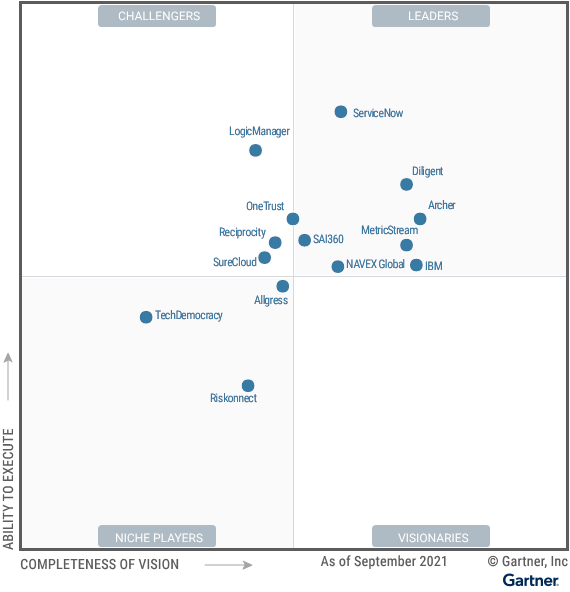Using electronic working papers creates dark data that becomes unusable. Audit management software can help you avoid this issue.
Years ago, when the audit community realized the complexity of managing documents and spreadsheets, a category of software products for auditors called electronic working papers emerged.
Electronic working papers sped up collaboration, but this new solution also had its limits. The problem was that important insights and information would often get trapped inside documents, where it effectively became what’s known as dark data.
Dark data is impossible to search, reference, analyze, export, report on, or access on mobile devices. It’s a serious issue because these are all key demands of today’s large audit teams. Dark data also can’t properly support insights and informed decision-making.
We’re at the dawn of a new era in audit technology. Internal audit teams are moving to intuitive software to access and interrogate 100% of their audit data—and by extension, protect the organization and prove the true value of the audit function.
Audit management software has several advantages over electronic working papers.
What does the best audit management software do?
Improves productivity of audit fieldwork
The audit management software interface creates clear structure around audit procedures to efficiently guide staff and avoid confusion.
Creates more consistency in approach and quality between audits
Documents lack structure, which means your teams may follow different approaches across audits. Lifting the work out of documents and into the audit software means a structured methodology will be followed.
Elevates the quality of audit insights
Using advanced tools to report on and analyze audit information across projects and teams lets you identify higher-quality, higher-level, and deeper root-cause insights.
Easily expands the breadth of audit insights
When data can be fully queried, you can instantly answer stakeholder questions and provide expanded insights.
Increases the speed of insight delivery
No need to wait until quarterly or bi-annual audit packages are prepared to compile and deliver results.
Enhances the ability to present high-impact reporting
Use intuitive interactive dashboards and visualizations to present insights, rather than manually-compiled reports.
Makes audit roll-forward easier and less invasive
Use one-click roll forwards and forget having to “invade” other documents to update embedded links.
Enhances audit automation
Take an “edit once, updated everywhere” approach; automate audit report creation; and initiate easy cloning, roll forward, and reuse of audit work.
Using audit management software also helps with administrative and IT-related burdens to:
- Reduce data integrity risks from storing embedded “non-document” metadata in files.
- Get rid of version conflicts, PC installations and upgrades of software and complex browser add-ins.
- Make sure data is exportable and transferable.
- Increase performance and minimize bandwidth.
- Make data accessible on any device.
Avoiding dark data starts with change management
If you still have problems with dark data, you’ll need to address your current processes and technologies to create lasting change. Purpose-built audit management systems can prevent dark data. But change is difficult–especially if your processes and technologies have been in effect for a long time.
Read our white paper below to learn more about how your organization can change from a culture of dark data sooner rather than later.
White paper
The 7 dangers of document-based auditing
This white paper highlights:
- How to avoid dark data and understand the need for digital evidence
- How to use structured databases to unlock the value of data analytics
- When you should avoid document-embedded metadata
- How to make critical documentation information available for queries.










